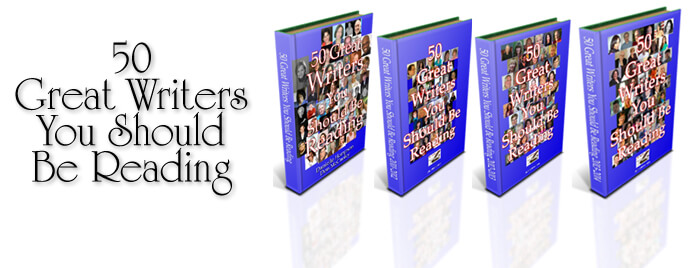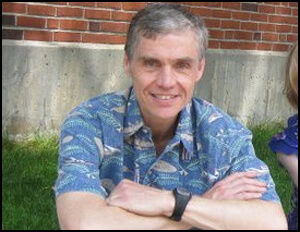
To help authors market their books and and to help create greater awareness, we occasionally feature winning stories submitted to our 50 Great Writers You Should Be Reading Awards Contest on this blog. The journey to success is often a long one. We hope the stories of successful authors will provide some encouragement and help others overcome the challenges they face. This story was submitted by Brian Aull.
 The power of human language has always impressed me. I once saw a web site that rated Martin Luther King and Adolf Hitler as the two most effective public speakers of the twentieth century. This is a reminder that speech can build the world anew or lay it waste.
The power of human language has always impressed me. I once saw a web site that rated Martin Luther King and Adolf Hitler as the two most effective public speakers of the twentieth century. This is a reminder that speech can build the world anew or lay it waste.
The written word has the same power. Martin Luther, the father of the Protestant Reformation, used the newly created printing press to unleash his condemnation of the corruption and hypocrisy of the Church. The technology of printing books was the Internet of the Middle Ages. It enabled Luther to mobilize the masses and transform Christendom.
While I’ve long appreciated the power of the pen, I never envisioned becoming a writer. Math and science were my strong subjects in school, and I had to work hard to do well in my English classes. At Brebeuf Jesuit Preparatory School, my writing skills were honed by a rigorous four-year English curriculum. Nevertheless, it was clear that my primary pursuit would be science and technology.
During my youth, another pursuit developed. Raised a Catholic, I went through stages of atheism, agnosticism, and Eastern mysticism as I sought answers to my burning questions. Are the religions of the world merely man-made belief systems or can we detect divine footprints in history? Are religion and science reconcilable? What is the relationship between the journey of the soul and the struggle for a peaceful and just society? My writing career grew out of my exploration of these questions, undertaken while witnessing the trajectory of American society.
As a teenager in the late 1960s, I was a passionate liberal and an idealist. That was a time of upheaval, but also of confidence that the American democratic system worked, that it was resilient, self-correcting, and responsive to the will of the citizens. In the 1970s, that confidence started to erode. Watergate and subsequent scandals deeply shook people’s faith in government. On the economic front, the widely shared prosperity of the 1960s was slipping away. By the 1980s there was increasing concentration of wealth in the hands of the wealthy. Homelessness was on the rise. Even when employment was high, there were fewer good jobs. At the same time, it seemed to me, materialistic values were increasingly celebrated, and social cohesion and civic engagement were declining.
The attention and loyalty of political leaders were being captured by professional lobbyists advocating for interests with lavish resources. Susan Trento’s 1992 book, The Power House, portrayed the selling of access and influence by a highly successful lobbying firm. William Greider’s Who Will Tell the People, published the same year, looked at the “decayed condition” of American democracy. The elites make decisions behind closed doors, and the citizens have little say.
By the mid-1990s political discourse was becoming more hostile, partisan divisions sharper. In the past few years, this problem has become even worse. Several political moderates recently departed from the U.S. Senate because of the divisive atmosphere and dysfunction that has paralyzed “the world’s greatest deliberative body.”
One of my high school classmates remarked that Americans know that something is “screwy” but they can’t quite put a finger on the underlying causes. We plainly see political corruption, partisan divisiveness, propagandizing media, broken schools, decaying infrastructure, high incarceration rates, and a widening gap between social classes. This circumstance presents both a danger and an opportunity. On the one hand, the discontent that it creates can feed the spread of toxic and extremist ideologies. On the other hand, it can cause people to reexamine assumptions and consider genuine remedies that might otherwise be dismissed as too idealistic.
In 2014, I embarked on a project inspired by the wisdom of Ben Franklin. “Instead of cursing the darkness, light a candle.” I wrote my first book, The Triad: Three Civic Virtues That Could Save American Democracy. The virtues are service, learning, and community building, which I propose as pillars of civic renewal.
Many books by political and social scientists are condensations of their research. The authors treat their moral values as “biases” to be minimized in their work. The Triad is not this type of book. It is moral persuasion from start to finish. While it builds on the work of scholars such as Robert Putnam and Francis Fukuyama, its purpose is to offer solutions rather than document problems.
My approach to civic renewal is inspired by my religion, the Baha’i Faith. Its scriptures advance what modern thinkers might call a social Gaia hypothesis. Humankind is not merely a collection of individuals, but an organic whole. This understanding guides and motivates Baha’i communities throughout the world in efforts to spiritually educate children, train young people to pursue paths of service, heal racial divisions, educate women and girls, and undertake social and economic development projects. The goal is to build the sinews of a world civilization based on justice and unity. The Baha’i Faith also offers a new model of democratic life. The community is administered not by priests but by governing councils elected in an atmosphere of prayerful reflection. These councils use a non-adversarial deliberation process in which the participants collaborate to investigate the facts and find the best solutions to issues.
It is unrealistic to expect a large and divided society to adopt the culture and practices of a small and cohesive community of faith. The contrast between the two, however, has led me to better understand what ails American society and what small strides people of good will could take to move the country in the right direction. This is why I chose service, learning, and community building as core virtues of citizenship. First, they are guiding principles that I have seen at work in successful grass roots projects. Second, they are clearly needed in American democratic life to incentivize better political leadership and motivate widespread civic engagement to solve problems.
This engagement can happen in many ways and in a variety of settings: an urban neighborhood whose residents work together to create a safe recreational space, a public school in which parents, students, and teachers collaborate to improve learning, a church that embraces diversity, a business that invests in social progress, voters that educate themselves on issues and vote with the goal of electing leaders with high ethical standards.
These solutions require work. The Triad offers no short cuts or quick fixes. Its message is that a healthy democratic society is at least as much about what we give as about what we get.
For more information, visit Brian Aull’s website at http://www.awakendemocracy.com.